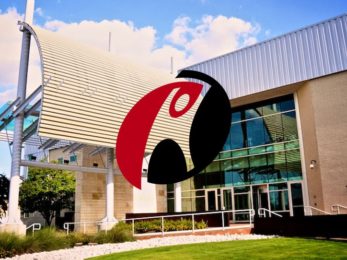 AI outfit ThoughtSpot has completed its acquisition of Mode Analytics, the modern Business Intelligence (BI) platform that brings data teams and business teams together.
AI outfit ThoughtSpot has completed its acquisition of Mode Analytics, the modern Business Intelligence (BI) platform that brings data teams and business teams together.
The deal was sorted out with a $200 million cash and equity transaction and strengthens ThoughtSpot’s position as a key player in the next generation of collaborative, AI-first business intelligence (BI).
ThoughtSpot and Mode Analytics deliver a complete platform spanning the spectrum of modern BI needs, from ad hoc novel analysis with a code-first approach, to natural language, self-service exploration and AI-driven monitoring.
As a result of this acquisition, ThoughtSpot’s ARR will grow to over $150 million, and with minimal customer overlap, new growth opportunities remain ahead for the combined company, including the potential to further scale its broad channel partner alliances and geographic footprint.
ThoughtSpot is also committing to investing resources to expand Mode’s current offerings, giving data professionals even more capabilities to utilize code-first approaches across their workflows, including SQL, R, and Python.
Thoughtspot CEO Sudheesh Nair said the demand for putting the power of AI to work is accelerating, and the joined forces of ThoughtSpot and Mode means data teams can confidently bring generative AI capabilities to business users – enter the new era of business intelligence.
“Bridging the gap between data teams and business users in a unified, dependable, governed way, this is something the market has needed for a long time,” he said.
“The beauty of this acquisition is we’ve tackled the same core problem in BI – making it useful to every employee, technical and nontechnical – from opposite ends. We are committed to continuing to push the boundaries on both ends of the spectrum. With the incredible talent and knowledge Mode’s team brings, especially for data teams, we’re going to leverage our combined R&D muscle to make Mode’s offerings even stronger for data teams.”
Mode CEO Gaurav Rewari said that in his two decades working in the BI space, it was the first time self-service analytics is possible for any user.
“We’ve reached an inflection point with the rise of data teams at companies of all sizes, from digital natives to the global 2000; innovations in search pioneered by ThoughtSpot that have served as the great unlock for business users; and the proliferation of generative AI, which we’re collectively committed to infusing everywhere in our combined platform,” he said.
 Tata Group will build a gigafactory in Britain to manufacture batteries, as nations accelerate away from fossil fuel vehicles.
Tata Group will build a gigafactory in Britain to manufacture batteries, as nations accelerate away from fossil fuel vehicles.
 Cloudy Rackspace Technology today announced the launch of FAIR Learn as part of the overall Foundry for Generative AI by Rackspace.
Cloudy Rackspace Technology today announced the launch of FAIR Learn as part of the overall Foundry for Generative AI by Rackspace. According to the Financial Conduct Authority (FCA) head, financial services are getting prone to AI frauds.
According to the Financial Conduct Authority (FCA) head, financial services are getting prone to AI frauds.
 The mass migration from Twitter to Threads has raised concerns among digital experts about jumping on the Threads bandwagon.
The mass migration from Twitter to Threads has raised concerns among digital experts about jumping on the Threads bandwagon. Juniper Research has found that operators’ revenue from SMS business messaging will reach $58 billion by 2027; rising from $46 billion in 2023.
Juniper Research has found that operators’ revenue from SMS business messaging will reach $58 billion by 2027; rising from $46 billion in 2023. Arrow is introducing a managed services portfolio to support channel partners through the service provision and delivery lifecycle.
Arrow is introducing a managed services portfolio to support channel partners through the service provision and delivery lifecycle. Job losses in the UK tech sector have fallen disproportionately on women, according to a new analysis of National Statistics data.
Job losses in the UK tech sector have fallen disproportionately on women, according to a new analysis of National Statistics data. Cisco Gold Partner ITGL has selected the Highlight Service Assurance Platform to enhance the managed service experience it delivers to its 200+ customers including NHS Trusts, university and colleges, as well as private sector companies.
Cisco Gold Partner ITGL has selected the Highlight Service Assurance Platform to enhance the managed service experience it delivers to its 200+ customers including NHS Trusts, university and colleges, as well as private sector companies. Data solutions provider D4t4 has reported a drop in revenue of 12.6 per cent to £21.4 million.
Data solutions provider D4t4 has reported a drop in revenue of 12.6 per cent to £21.4 million. Security outfit Drata has appointed Sydney Sloan as the company’s first ever Chief Marketing Officer (CMO).
Security outfit Drata has appointed Sydney Sloan as the company’s first ever Chief Marketing Officer (CMO).




